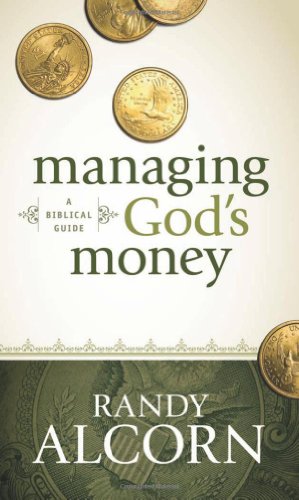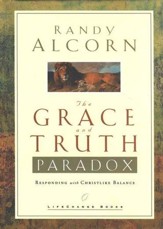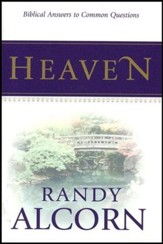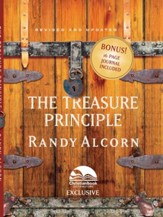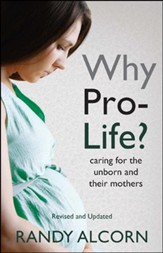
Quotes by Randy Alcorn
For Christians, this present life is the closest they will come to Hell. For unbelievers it is the closest they will come to Heaven.
Taken from Heaven by Randy Alcorn. Copyright © 2004 by Tyndale, p. 28. Used by permission of Tyndale House Publishers, Inc. All rights reserved.
The biblical view of children is that they are a blessing and a gift from the Lord (Ps. 127:3–5). However, Western culture increasingly treats children as liabilities. We must learn to see all children as God does, and we must act toward them as He commands us to act. We must defend the cause of the weak and fatherless; maintain the rights of the poor and oppressed; rescue the weak and needy; and deliver them from the wicked (Ps. 82:3–4).
Imposing capital punishment on the innocent child of a sex offender does nothing bad to the rapist and nothing good to the woman. Creating a second victim never undoes the damage to the first. Abortion does not bring healing to a rape victim.
In their book, Victims and Victors, David Reardon and associates draw on the accounts of 192 women who experienced pregnancy as the result of rape or incest. It turns out that when victims of violence speak for themselves, their opinion of abortion is nearly unanimous and the exact opposite of what most would predict: nearly all the women interviewed said they regretted aborting their babies conceived via rape or incest. Of those giving an opinion, more than 90 percent said they would discourage other victims of sexual violence from having abortions. Not one who gave birth to a child expressed regret.
No child is a despicable “product of rape or incest” but God’s unique and wonderful image-bearing creation. Having and holding a child can do much more good for a victimized woman than the knowledge that a child died in an attempt to reduce her trauma.
The comparison between babies’ rights and mothers’ rights is unequal. What is at stake in the vast majority of abortions is the mother’s lifestyle, as opposed to the baby’s life. In such cases, it is reasonable for society to expect an adult to live temporarily with an inconvenience if the only alternative is killing a child.
Like toddler and adolescent, the terms embryo and fetus do not refer to nonhumans but to humans at various stages of development. It is scientifically inaccurate to say a human embryo or a fetus is not a human being simply because he is at an earlier stage than an infant. This is like saying that a toddler is not a human being because he is not yet an adolescent. Does someone become more human as he gets bigger? If so, then adults are more human than children, and football players are more human than jockeys. Something nonhuman does not become human or more human by getting older or bigger; whatever is human is human from the beginning, or it can never be human at all. The right to live does not increase with age and size; otherwise, toddlers and adolescents have less right to live than adults.
All that was necessary to prohibit an abortion [in the Bible] was the command, “You shall not murder” (Ex. 20:13). Every Israelite knew that the preborn child was a child. So do we, if we are honest. We all know a pregnant woman is “carrying a child.”
Psalm 139:13-16 paints a vivid picture of God’s intimate involvement with a preborn person. God created David’s “inward parts” not at birth, but before birth. David says to his Creator, “You knitted me together in my mother’s womb” (v. 13). Each person, regardless of his parentage or handicap, has not been manufactured on a cosmic assembly line, but personally formed by God. All the days of his life are planned out by God before any come to be (v. 16).
The way to no longer feel guilty is not to deny guilt, but to face it and ask for God’s forgiveness.
The Grace and Truth Paradox, 2003, Used by Permission from Eternal Perspective Ministries, www.epm.org, p. 77.
Truth without grace breeds a self-righteous legalism.
The Grace and Truth Paradox, 2003, Used by Permission from Eternal Perspective Ministries, www.epm.org, p. 61.
Get this book!
Ephesians 4:15 tells us to speak the truth in love, not to withhold the truth in love.
The Grace and Truth Paradox, 2003, Used by Permission from Eternal Perspective Ministries, www.epm.org, p. 77.
God’s grace faces hell’s reality straight on, offering full deliverance. Denying hell takes the wind out of grace’s sails. If there’s no eternal hell, the stakes of redemption are vastly lowered. What exactly did Jesus die to rescue us from?
The Grace and Truth Paradox, 2003, Used by Permission from Eternal Perspective Ministries, www.epm.org, p. 75. Get this book!
[The] denial of hell in the name of grace discourages people from the grace [such a person claims to] love, while leading [the individual] toward the hell [one] hates and denies… He who thinks he’s not drowning won’t reach for the life preserver.
The Grace and Truth Paradox, 2003, Used by Permission from Eternal Perspective Ministries, www.epm.org, p. 74-75.
The ancient, historical Jesus came full of grace and truth. The modern, mythological Jesus comes full of tolerance and relativism. Even in the church truth is sometimes buried under subjectivism and cowardice, while grace is lost in a sea of permissiveness and indifference. Without truth, we lack courage to speak and convictions to speak about. Without grace, we lack compassion to meet people’s deepest needs. The vast majority of colleges were built with the vision and funding of Christians. Why? To teach truth. Most American hospitals were built with the vision and funding of Christians. Why? To extend grace. We don’t have the luxury of choosing either grace or truth. Yet many believers habitually embrace one instead of the other, according to our temperament, background, church or family. We must learn to say yes to both grace and truth – and say no to whatever keeps us from them.
The Grace and Truth Paradox, 2003, Used by Permission from Eternal Perspective Ministries, www.epm.org, p. 72-73.
“All religions are basically the same”?… Hinduism’s gods are many and impersonal. Christianity’s God is one and personal. Buddhism offers no forgiveness or divine intervention. Christianity offers forgiveness and divine intervention. In Judaism and Islam men earn righteous status before God through doing good works. In Christianity men gain righteousness only by confessing their unrighteousness and being covered by Christ’s merit. Every other religion is man working his way to God. Christianity is God working His way to men.
The Grace and Truth Paradox, 2003, Used by Permission from Eternal Perspective Ministries, www.epm.org, p. 69.
Righteousness never comes by faith in self, but by faith in God.
The Grace and Truth Paradox, 2003, Used by Permission from Eternal Perspective Ministries, www.epm.org, p. 68.
Get this book!
A home full of grace is also full of truth, because grace doesn’t make people less holy; it makes them more holy. Grace doesn’t make people despise or neglect truth; it makes them love and follow truth. Far from a free pass to sin, grace is a supernatural empowerment not to sin (Titus 2:11-12). Grace raises the bar, but it also enables us to joyfully jump over that bar. Any concept of grace that leaves us – or our children – thinking that truth is unimportant is not biblical grace.
The Grace and Truth Paradox, 2003, Used by Permission from Eternal Perspective Ministries, www.epm.org, p. 66. Get this book!
Grace never lowers the standards of holiness. Jesus didn’t lower the bar, He raised it (Mt. 5:27-28)!
The Grace and Truth Paradox, 2003, Used by Permission from Eternal Perspective Ministries, www.epm.org, p. 66.
You and I can discover truth, but we cannot create it. What’s true is true and what’s not is not – for all of us, all the time. Our culture views truth as something inside us, subject to revision according to our growth and enlightenment. Scripture views truth as something outside us, which we can believe or not but can never sway.
The Grace and Truth Paradox, 2003, Used by Permission from Eternal Perspective Ministries, www.epm.org, p. 39.
The hardest part about grace – swallowing our pride and saying, “I don’t deserve this any more than that criminal does.”
The Grace and Truth Paradox, 2003, Used by Permission from Eternal Perspective Ministries, www.epm.org, p. 81.
Any concept of grace that makes us feel more comfortable about sinning is not biblical grace. God’s grace never encourages us to live in sin; on the contrary, it empowers us to say no to sin and yes to truth.
The Grace and Truth Paradox, 2003, Used by Permission from Eternal Perspective Ministries, www.epm.org, p. 82. Get this book!
Living by grace means affirming daily our unworthiness. We are never thankful for what we think we deserve. We are deeply thankful for what we know we don’t deserve.
The Grace and Truth Paradox, 2003, Used by Permission from Eternal Perspective Ministries, www.epm.org, p. 84.
Are we trying to atone for our sins? We can’t. Only Jesus can, and He already did. Don’t try to repeat the atonement – just accept it! Embrace God’s forgiveness.
The Grace and Truth Paradox, 2003, Used by Permission from Eternal Perspective Ministries, www.epm.org, p. 84.
Our debt to God is infinitely beyond our capacity to pay. Our debt to God is infinitely greater than any person’s debt to us. When we truly experience God’s forgiveness for our sins it will transform us into forgiving people.
The Grace and Truth Paradox, 2003, Used by Permission from Eternal Perspective Ministries, www.epm.org, p. 85.
If we minimize grace the world sees no hope for salvation. If we minimize truth, the world sees no need for salvation. To show the world Jesus, we must offer unabridged grace and truth, emphasizing both, apologizing for neither.
The Grace and Truth Paradox, 2003, Used by Permission from Eternal Perspective Ministries, www.epm.org, p. 87.
Truth is quick to post warning signs and guardrails at the top of the cliff. Yet it fails to empower people to drive safely – and neglects to help them when they crash. Grace is quick to post ambulances and paramedics at the bottom of the cliff. But without truth, it fails to post warning signs and build guardrails. In so doing, it encourages the very self-destruction it attempts to heal.
The Grace and Truth Paradox, 2003, Used by Permission from Eternal Perspective Ministries, www.epm.org, p. 87.
Truth without grace crushes people and ceases to be truth. Grace without truth deceives people and ceases to be grace.
The Grace and Truth Paradox, 2003, Used by Permission from Eternal Perspective Ministries, www.epm.org, p. 88.
Truth without grace degenerates into judgmental legalism. Grace without truth degenerates into deceitful tolerance.
The Grace and Truth Paradox, 2003, Used by Permission from Eternal Perspective Ministries, www.epm.org, p. 88.
Christ’s heart is equally grieved by grace-suppression and truth-suppression, by grace-twisting and truth-twisting.
The Grace and Truth Paradox, 2003, Used by Permission from Eternal Perspective Ministries, www.epm.org, p. 88.
Behavior modification that’s not empowered by God’s heart-changing grace is self-righteousness, as repugnant to God as the worst sins people gossip about.
The Grace and Truth Paradox, 2003, Used by Permission from Eternal Perspective Ministries, www.epm.org, p. 37.
Godly living centers not on we avoid, but on whom we embrace. Anytime we talk more about dos and don’ts than about Jesus, something’s wrong.
The Grace and Truth Paradox, 2003, Used by Permission from Eternal Perspective Ministries, www.epm.org, p. 37.
Humility isn’t pretending we’re unworthy because it’s spiritual – it’s recognizing we’re unworthy because it’s true.
The Grace and Truth Paradox, 2003, Used by Permission from Eternal Perspective Ministries, www.epm.org, p. 32.
The worse we realize we are, the greater we realize God’s grace is.
The Grace and Truth Paradox, 2003, Used by Permission from Eternal Perspective Ministries, www.epm.org, p. 32. Get this book!
When we offend everybody, it’s because we’ve taken on the truth mantle without grace. When we offend nobody, it’s because we’ve watered down truth in the name of grace.
The Grace and Truth Paradox, 2003, Used by Permission from Eternal Perspective Ministries, www.epm.org, p. 20.
Get this book!
A paradox is an apparent contradiction. Grace and truth aren’t really contradictory. Jesus didn’t switch on truth, then turn it off so He could switch on grace. Both are permanently switched on in Jesus. Both should be switched on in us… Truth without grace breeds a self-righteousness legalism that poisons the church and pushes the world from Christ. Grace without truth breeds moral indifference and keeps people from seeing their need for Christ. Attempts to “soften” the gospel by minimizing truth keep people from Jesus. Attempts to “toughen” the gospel by minimizing grace keep people from Jesus. It’s not enough for us to offer grace or truth. We must offer both.
The Grace and Truth Paradox, 2003, Used by Permission from Eternal Perspective Ministries, www.epm.org, p. 17-18.
God’s grace didn’t get us going then leave us to get by on our works. Grace didn’t just justify us in the past, it sustains us in the present and will deliver us in the future.
The Grace and Truth Paradox, 2003, Used by Permission from Eternal Perspective Ministries, www.epm.org, p. 46.
It’s increasingly common for Christians to ask one another the tough questions: How is your marriage? Have you been spending time in the Word? How are you doing in terms of sexual purity? Have you been sharing your faith? But how often do we ask, “How much are you giving to the Lord?” or “Have you been robbing God?” or “Are you winning the battle against materialism?”
The Treasure Principle, 2002, p. 81, Used by Permission from Eternal Perspective Ministries, www.epm.org. Get this book!
Do you ever sense creation’s restlessness? Do you hear groaning in the cold night wind? Do you feel the forests’ loneliness, the oceans’ agitation? Do you hear longing in the cries of the whales? Do you see blood and pain in the eyes of wild animals, or the mixture of pleasure and pain in the eyes of your pets? Despite vestiges of beauty and joy, something on this earth is terribly wrong… The creation hopes for, even anticipates, resurrection.
In the day that we stand before our Master and Maker, it will not matter how many people on earth knew our name, how many called us great, and how many considered us fools. It will not matter whether schools and hospitals were named after us, whether our estate was large or small, whether our funeral drew ten thousand or no one. It will not matter what the newspapers or history books said or didn’t say. What will matter is one thing and one thing only – what the Master thinks of us.
Not only will we see his face and live, but we will likely wonder if we ever lived before we saw his face!
I’ve heard people say, “I want more of a heart for missions.” I always respond, “Jesus tells you exactly how to get it. Put your money in missions – and in your church and the poor – and your heart will follow.”
The Treasure Principle, 2002, p. 42, Used by Permission from Eternal Perspective Ministries, www.epm.org. Get this book!
When Jesus warns us not to store up treasures on earth, it’s not just because wealth might be lost; it’s because wealth will always be lost. Either it leaves us while we live, or we leave it when we die. No exceptions… Realizing its value is temporary should radically affect our investment strategy… According to Jesus, storing up earthly treasures isn’t simply wrong. It’s just plain stupid.
The Treasure Principle, 2002, p. 13-14, Used by Permission from Eternal Perspective Ministries, www.epm.org. Get this book!
Another benefit of giving is freedom. It’s a matter of basic physics. The greater the mass, the greater the hold that mass exerts. The more things we own – the greater their total mass – the more they grip us, setting us in orbit around them. Finally, like a black hole, they suck us in… We think we own our possessions, but too often they own us.. .Every item we buy is one more thing to think about, talk about, clean, repair, rearrange, fret over, and replace when it goes bad.
The Treasure Principle, 2002, p. 33, 51-52, Used by Permission from Eternal Perspective Ministries, www.epm.org. Get this book!
Selfishness is when we pursue gain at the expense of others. But God doesn’t have a limited number of treasures to distribute. When you store up treasures for yourself in heaven, it doesn’t reduce the treasures available to others. In fact, it is by serving God and others that we store up heavenly treasures. Everyone gains; no one loses.
The Treasure Principle, 2002, p. 15-16, Used by Permission from Eternal Perspective Ministries, www.epm.org. Get this book!
God doesn’t look at just what we give. He also looks at what we keep.
The Treasure Principle, 2002, p. 63, Used by Permission from Eternal Perspective Ministries, www.epm.org. Get this book!
When you leave this world, will you be known as one who accumulated treasures on earth that you couldn’t keep? Or will you be recognized as one who invested treasures in heaven that you couldn’t lose?
The Treasure Principle, 2002, p. 49, Used by Permission from Eternal Perspective Ministries, www.epm.org. Get this book!
You can’t take it with you – but you can send it on ahead.
The Treasure Principle, 2002, p. 17, Used by Permission from Eternal Perspective Ministries, www.epm.org. Get this book!
Many Christians dread the thought of leaving this world. Why? Because so many have stored up their treasures on earth, not in heaven. Each day brings us closer to death. If your treasures are on earth, that means each day brings you closer to losing your treasures.
The Treasure Principle, 2002, p. 40, Used by Permission from Eternal Perspective Ministries, www.epm.org. Get this book!
He who lays up treasures on earth spends his life backing away from his treasures. To him, death is loss. He who lays up treasures in heaven looks forward to eternity; he’s moving daily toward his treasures. To him, death is gain. He who spends his life moving toward his treasures has reason to rejoice. Are you despairing or rejoicing?
The Treasure Principle, 2002, p. 43, Used by Permission from Eternal Perspective Ministries, www.epm.org. Get this book!
God prospers me not to raise my standard of living, but to raise my standard of giving.
The Treasure Principle, 2002, p. 73, Used by Permission from Eternal Perspective Ministries, www.epm.org. Get this book!
God comes right out and tells us why He gives us more money than we need. It’s not so we can find more ways to spend it. It’s not so we can indulge ourselves and spoil our children. It’s not so we can insulate ourselves from needing God’s provision. It’s so we can give – generously. When God provides more money, we often think, This is a blessing. Well, yes, but it would be just as scriptural to think, This is a test.
The Treasure Principle, 2002, p. 73, Used by Permission from Eternal Perspective Ministries, www.epm.org. Get this book!
But isn’t it wrong to be motivated by reward? No, it isn’t. If it were wrong, Christ wouldn’t offer it to us as a motivation. Reward is His idea, not ours.
The Treasure Principle, 2002, p. 39, Used by Permission from Eternal Perspective Ministries, www.epm.org. Get this book!
It seems fair to ask, “God, do You really expect less of me – who has your Holy Spirit within and lives in the wealthiest society in human history – than You demanded of the poorest Israelite?”… The tithe is God’s historical method to get us on the path of giving. In that sense, it can serve as a gateway to the joy of grace giving. It is unhealthy to view tithing as a place to stop, but it can be a good place to start… Tithing isn’t the ceiling of giving; it’s the floor. It’s not the finish line of giving; it’s just the starting blocks… True, some would be sacrificing more by giving 5% of their income than others would be by tithing or even giving 50 or 90%. Certainly the affluent should never “check off the box,” as if giving 10% automatically fulfills their obligation. The 90% belongs to God, too. He doesn’t look at just what we give. He also looks at what we keep… When people tell me they can’t afford to tithe, I ask them, “If your income was reduced by 10% would you die?” They say, “No.” And I say, “Then you’ve admitted that you can afford to tithe. It’s just that you don’t want to”… I have no problem with people who say “we’re not under the tithe,” just as long as they’re not using that as justification for giving less. But in my mind the current giving statistics among Christians clearly indicate most of us need a jump-start. If you find a gateway to giving that’s better than the tithe, wonderful. But if not, why not start where God started His First Covenant children?
The Treasure Principle, 2002, p. 61-65, Used by Permission from Eternal Perspective Ministries, www.epm.org. Get this book!
If God was the owner, I was the manager. I needed to adopt a steward’s mentality toward the assets He had entrusted – not given – to me. A steward manages assets for the owner’s benefit. The steward carries no sense of entitlement to the assets he manages. It’s his job to find out what the owner wants done with his assets, then carry out his will.
The Treasure Principle, 2002, p. 24, Used by Permission from Eternal Perspective Ministries, www.epm.org. Get this book!
Your children should love the Lord, work hard, and experience the joy of trusting God. More important than leaving your children an inheritance is leaving them a spiritual heritage. If you left your children money they didn’t need, and if they were thinking correctly, wouldn’t they give it to God anyway? Then why not give it to God yourself, since He entrusted it to you?
The Treasure Principle, 2002, p. 70-71, Used by Permission from Eternal Perspective Ministries, www.epm.org. Get this book!
The parable of hidden treasure is one of many references Jesus made to money and possessions. In fact, 15% of everything Christ said relates to this topic – more than His teachings on heaven and hell combined. Why did Jesus put such an emphasis on money and possessions? Because there’s a fundamental connection between our spiritual lives and how we think about and handle money. We may try to divorce our faith and our finances, but God sees them as inseparable.
The Treasure Principle, 2002, p. 8, Used by Permission from Eternal Perspective Ministries, www.epm.org. Get this book!
The more you give, the more comes back to you, because God is the greatest giver in the universe, and He won’t let you outgive Him. Go ahead and try. See what happens.
The Treasure Principle, 2002, p. 71, Used by Permission from Eternal Perspective Ministries, www.epm.org. Get this book!
You may think, No problem there. I’m putting my church and ministries in my will. By all means, do your estate planning and give heavily to God’s kingdom. But what kind of trust does it take to part with your money once you die? You don’t have any choice! Death isn’t your best opportunity to give; it’s the end of your opportunity to give. God rewards acts of faith done while we’re still living.
The Treasure Principle, 2002, p. 68, Used by Permission from Eternal Perspective Ministries, www.epm.org. Get this book!

